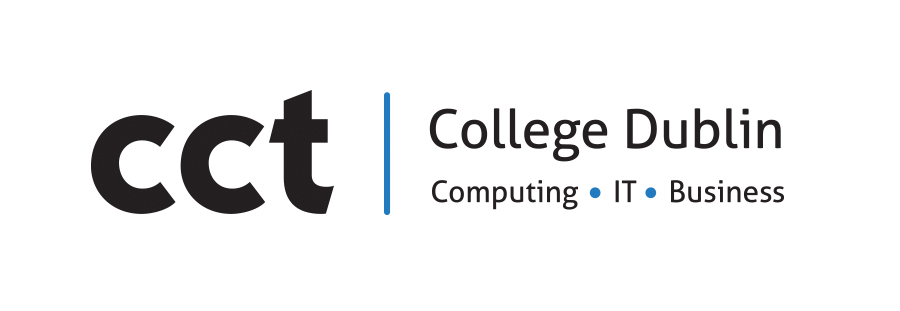

Course Overview
The Diploma in Data Analytics for Business is designed for learners seeking to develop their knowledge, skills and competence in the area of Data Analytics and is being offered, funded via Springboard+ commencing September 2023. This special purpose programme designed to produce graduates with the attributes required of Data Analysts today and the ability to continue to develop knowledge, skill and competence to remain competitive and employable in an ever-advancing sector. Learners will engage with the opportunity to assimilate knowledge within an industry focused learning environment. This focus is maintained through the use of many practical sessions including labs and workshops. Graduates of this programme should be able to secure professional roles at entry or junior level positions in Data Analysis, and progress to beyond these roles using skills related to those learned in the programme curriculum. The graduate will also be well-placed to pursue further academic studies at NFQ level 7 or above.
The programme utilises a carefully designed programme schedule with modules focused on data analysis topics. The design and development of modules within this programme were informed by significant industry consultation. The programme comprises of classroom and laboratory learning as well as interactive workshops. All of this is carried out within an industry focused environment. Industry-initiated real-world problems will be provided and used as the context for planning and designing assessment solutions, as well as being an aid for problem-solving sessions. The incorporated learning from all modules aims to ready learners for industry and/or academic development.
The Diploma in Data Analytics for Business aims to provide learners with a progression pathway to professional roles at entry or junior level in Data Analysis as well as the option to further their education in the area of Data Analytics. It also aims to provide graduates with the ability to advance their IT career by attaining a qualification which enables them to secure industry entry-level positions or further advancement within their current sphere. Students on the programme will be provided with an environment conducive with personal development established through the use of peer learning, mentoring and formative feedback, thus allowing them to acquire new knowledge and the ability to seek guidance. In addition to the data analytics and associated technical skills, which will be fostered during the participants studies, transferable skills that will be developed throughout the programme via the varied teaching and assessment methods include: critical analysis, advanced evaluation, self-analysis and personal reflection, problem solving, communication skills, written communication skills, team management and group-work and professionalism.
This is a one year, part time, Diploma in Data Analytics for Business course, with contact hours delivered over evening and weekend schedule slots (to afford any enrolled student not currently in employment the opportunity to accept a daytime job offer and continue to completion of the course as well as allow those in employment to balance course work with other full-time commitments).
Read more about the Diploma in Data Analytics for Business below
- Digital Transversal Skills
- Introduction to Programming for Data Analytics
- Fundamentals of Statistics for Data Analytics
- Machine Learning I
- Data Exploration and Preparation
- Data Visualisation and Communication
- Machine Learning II
- Analytical Methods for Big Data
- Strategic Business IT
Admission to this the Diploma in Data Analytics for Business is through one of the following:
Evidence of prior learning, including experiential learning,
or
Possession of an NFQ level 5 award, including leaving certificate, FET award, or equivalent.
In addition, all applicants must evidence competence in mathematics equivalent to O6 standard in leaving certificate and competence in the use of IT. Basic computer literacy is not sufficient for this programme.
The minimum requirements for general learning are the ability to communicate effectively in writing – produce written summaries, reports, discussions and projects on academic and or applied matters, along with the ability to work independently and as part of a team.
For applicants whose first language is not English, English language competency required for entry must be equal to or greater than B2+ in the CEFRL. English language credentials endorsed by other systems (viz. IELTS, TOEFL, PTE, Cambridge, Duolingo etc.) will be assessed to ensure they meet this minimum standard.
For entry via RPL applicants are required to demonstrate general learning competence. Mathematical competence and comfort and familiarity in the use of IT, along with the ability to write reports or similar written documentation, are also required.
Those who are in employment/working :
For eligible applicants who are currently in employment/working 90% of the tuition fees will be covered by the HEA through Springboard+ and the remaining 10% is payable by the student or their employer.
The full fee for this course is €4,875 so for successful applicants who are in employment €487.50 will be payable once you have been offered a place and before you enrol on your Springboard+ course.
Those who are unemployed, formerly self-employed or ‘Returners’:
This course is free for eligible applicants who are unemployed, formerly self-employed or who are classified by Springboard+ as ‘Returners’ or ‘Homemakers’.
Further information:
Please see this link on the Springboard Courses website for more detail on funding eligibility and also this link on the Springboard Courses website detailing documents that are acceptable as evidence of eligibility.
Application for this Diploma in Data Analytics for Business course commencing September 2023 is now open. Application should be made via the Springboard+ website here.
All QQI accredited programmes of education and training of 3 months or longer duration are covered by arrangements under section 65 (4) of the Qualifications and Quality Assurance (Education and Training) Act 2012 whereby, in the event of the provider ceasing to provide the programme for any reason, enrolled learners may transfer to a similar programme at another provider, or, in the event that this is not practicable, the fees most recently paid will be refunded.


